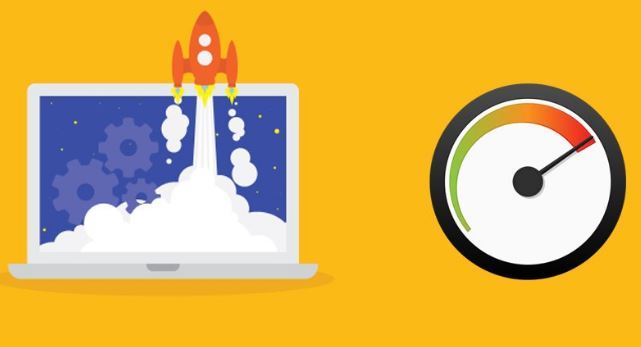If your website is slow, you could be leaking visitors AND search engine rankings. Stop turning people away and get your site updated. Not only will it encourage visitors to stay on your site, instead of leaving before it loads, you can also be rewarded by Google.
First, what is page speed? Page speed is a measurement of how fast the content on your page loads. Your site speed is a result of a sampling of your page speeds.
Google has indicated that it uses site speed (and page speed) in its algorithm to rank pages in search results. While they haven’t released all the details, some predict that Google is specifically measuring “time to first byte” when it considers your page speed. A slow page speed also means that search engines can’t crawl as many pages during their crawl time. This could negatively affect your indexation, as they can’t see all the wonderful pages you spent so much time developing.
Users also prefer faster sites. Pages with a longer load time typically have higher bounce rates, and lower average time on page. According to a report by the Microsoft Bing search team, a 2-second longer delay in page responsiveness reduced user satisfaction by 3.8%, increased lost revenue per user by 4.3%, and a reduced clicks by 4.3%.
To start, determine your own page speed. Head to Google’s Page Speed Insights and enter your URL. Just a heads up, If your site is new, you might not have enough traffic to get the data.
If your site is looking slow – or if it’s new and you want to get it right the first time! – there are many ways you can optimize your pages for lighting-fast load times. Make these fixes to your site now, and keep updating them as you build it out.
Pick a Good Theme
If you’re using WordPress, Wix, Squarespace, or another website-building tool that includes theme, be careful with which one you choose. You might be drawn to one with all kinds of widgets and images and moving videos. But unfortunately, it will just slow down your site.
Pick one that is basic, so you aren’t wasting time and space on features that you don’t even need. Check out the comments when you download theme, or search around for “fastest WordPress themes.”
Optimize Your Code
If you’re using custom code in your site, you can slim it down. Try removing spaces, commas, and other unnecessary characters. With those little changes, you can dramatically increase your page speed. Also remove code comments, formatting, and unused code.
Reduce Redirects
Every time a page redirects to another page, a site visitor has to wait for that request to go through. Delete redirects where possible to streamline. Of course, sometimes redirects are necessary to send visitors from outdated content and broken URLs to updated content, or as a temporary measure while a specific bit of content is updated. But look through to clean up any URL redirects, like structures that go “example.com -> www.example.com -> m.example.com -> m.example.com/home.”
Optimize Images
All those beautiful pictures on your site could be a big culprit of a slow website. Make sure your images are no longer than you need to be. Shrink them in Photoshop or an online service like this one. Check that they are compressed for the web. And look at the file size – PNGs are generally better for graphics with fewer than 16 colors while JPEGs are generally better for photographs.
Optimize Homepage
The priority in speeding up your site should start with the homepage. You can try these tricks to shorten the content and make it easier to load, including:
- Show excerpts instead of full posts
- Reduce the number of posts on the page
- Remove unnecessary sharing widgets from the home page (include them only in posts)
- Remove inactive plugins and widgets that you don’t need
- Keep in minimal!
If you clean up your site, you’ll hopefully be rewarded with smaller bounce rates, more traffic, and better return on investment for all your hard work. Got questions? Let us know!
